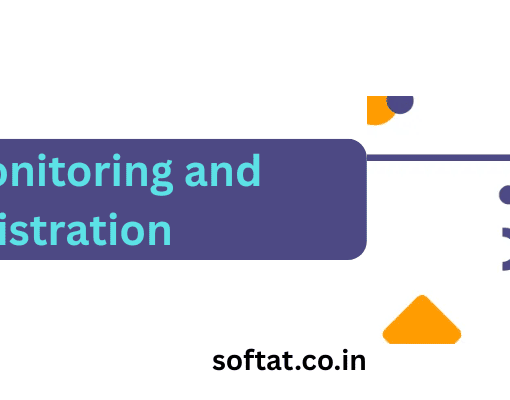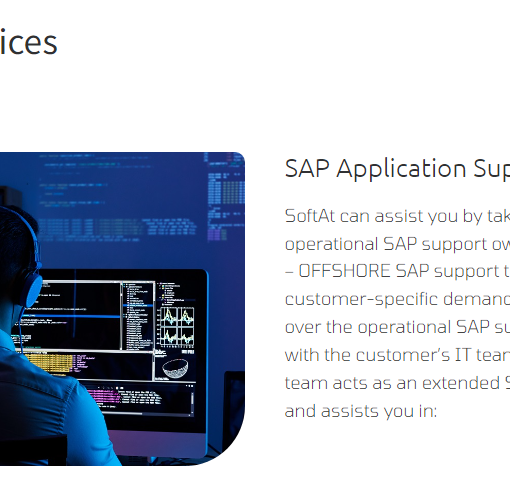What is SAP Investment Management?
SAP Investment Management (IM) is an ERP Central Component (ECC) module that aids in the planning and management of investments and capital expenditures. The SAP IM module includes functionality for managing fixed asset investments. Financial assets, on the other hand, are controlled in SAP ECC’s SAP Treasury (TR) module.
It is an important SAP product for automating financial planning, investment, and other associated operations; it is especially vital for investments in the fields of research and development, capital structuring, and project and maintenance management. It aids in the planning of the budget needed to sustain business operations as well as the distribution of budget data for various maintenance project networks. Furthermore, SAP IM components and tools are beneficial for enhancing planning and budgeting at many levels, and they provide the greatest solutions for monitoring comprehensive budgets.
SAP IM also facilitates the development and consistent monitoring of an organization’s strategic plans. For example, a capital investment plan integrates explicit and comprehensive relationships between assets and planned delivery/capacity results of the projects they support, making it an effective way to plan limited capital resources.
This SAP module is also useful in situations where the whole decision-making process reveals the need for new asset investments as well as significant upgrades or improvements to existing assets. IM is being predominantly used in maintenance and capital intensive industries for supporting the processes of Asset Lifecycle Management (ALM); along with successful applications in all other types of project lifecycles in various industry verticals and organizations. In other words, it is not essential for the organization to be involved in ALM to enjoy the many advantages of SAP IM.
The inclusion of SAP IM by consultants in an organization helps in:
- The generation of long term project proposals (for operations and investments alike).
- Reviewing, analyzing and choosing from the generated proposals.
- Implementing and monitoring the selected proposals.
These methods, when properly implemented, aid in making investment decisions that optimize shareholder value and returns. Enterprises that construct an Investment Plan and an annual budget, want to find meaningful ways to monitor the budget and are looking for more than just simple individual metrics will find SAP IM highly beneficial. This module’s investment programs assist in gaining an understanding of planning/budgeting procedures in complicated enterprise structures, as well as keeping rigorous budgetary control – all in a convenient and cost-effective manner.
The activities performed by the SAP IM module are:
- Cost planning
- Create Master Data
- Create investment program
- Specify budget
- Check availability Control for Internal Orders
- Procurement for Investments
- Settlement and Closing of Capital Investment Measures
- Fiscal Year Change
Certification Cost and Course Duration in India
The SAP IM (Investment Management) training covers the module’s most common end-user skills and functionality. It provides its audience with the fundamental skills needed to operate with SAP’s Investment Management functionalities.
The course contents are:
- Overview of the business processes
- Create and maintain master data
- Investment program
- Perform, Planning & Budgeting functions
- Appropriate request, status management functions
- Investment projects as investment measures
- Depreciation Forecast
- Information system, Execute common reports
The duration of the course varies on the basic skills possessed by the candidate and the type of institute. The duration can be from 6.5 hours to 5 days. Thus course fee varies accordingly from 11K to 35K.
Scope and Opportunity in SAP Investment Management (IM)
A certification course in SAP IM (Investment Management) is best suited for business analysts or IT professionals who play a critical role in financial planning, analysis, and budgeting. It helps them do their responsibilities more accurately and effectively. It’s also a good choice for end-users and project members who are responsible for investment budgeting, cost planning, and internal order availability control.
By enrolling in this course, these individuals may be able to improve their skill sets and expertise in the field of IM. Candidates must have the necessary abilities and meet specific pre-requisites in order to earn more from this course and receive access to highly-paid employment and reputable firms.
These are:
- Prior knowledge of financial and accounting terms as well as financial/ business processes of an organization.
- Reporting skills and basic knowledge of the information technology domain.
- Awareness of SAP, ERP (Enterprise resource planning) tools and prior knowledge of their concepts and navigation modes.
- Ability to work in a team.
Freshers with degrees in the field of B.com, M.com, MBA (finance/ accounting), B.E, B.Tech /M. Tech (any specialization) and MCA may also apply for the SAP IM certification course; provided they have the above-mentioned skills.
Benefits of SAP Investment Management:
a) Streamlined Investment Processes: SAP IM automates and streamlines investment activities, reducing manual effort and improving efficiency in budgeting, planning, and monitoring. It ensures transparency and accuracy in financial reporting and compliance.
b) Improved Decision-Making: With real-time data and analytics, SAP IM empowers organizations to make informed investment decisions. It provides a holistic view of investment portfolios, enabling better resource allocation and risk mitigation strategies.
c) Enhanced Collaboration and Communication: SAP IM facilitates collaboration among different departments and stakeholders involved in investment management. It enables seamless communication, ensuring alignment and coordination throughout the investment lifecycle.
d) Compliance and Governance: SAP IM supports regulatory compliance by providing features for tracking and monitoring investment processes. It helps organizations adhere to financial reporting standards and internal governance policies.
e) Scalability and Flexibility: SAP IM is highly scalable and adaptable, accommodating the changing needs of organizations as their investment portfolios grow. It can be customized to align with specific business requirements and integrate with other SAP modules.
Conclusion:
SAP Investment Management empowers organizations to optimize their investment strategies, mitigate risks, and drive financial performance. By leveraging its comprehensive features and functionalities, businesses can streamline investment processes, make data-driven decisions, and achieve greater transparency and control over their investment portfolios. Whether it’s a small business or a large enterprise, SAP IM equips organizations with the tools they need to maximize returns, minimize risks, and navigate the complex world of investment management with confidence.





